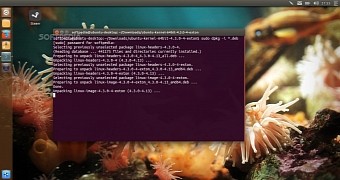Key Points
- Canonical Livepatch is a service that allows Ubuntu users to apply critical kernel security patches without rebooting, enhancing system security and uptime.
- Kernel live patching is most suitable for critical, high-priority vulnerabilities that require immediate attention, especially in environments where downtime is unacceptable.
- Ubuntu Pro includes Canonical Livepatch, offering a comprehensive subscription for security, hardening, compliance, and support for open source software, tailored for both Ubuntu LTS and Ubuntu Core users.
As a tech journalist focusing on Ubuntu and Linux insights, it’s essential to delve into the world of Linux kernel security patching and the innovative livepatch capability. This feature is designed to keep systems secure without the need for a reboot, a game-changer for environments where continuous operation is paramount. Canonical Livepatch is at the forefront of this technology, offering users of Ubuntu Long-Term Support (LTS) and Ubuntu Core the ability to apply critical kernel security patches seamlessly.
Understanding when to use kernel live patching is crucial. It’s most beneficial for addressing high-priority kernel vulnerabilities that require immediate action. Also, learning about updating deb and snap packages and then rebooting is a good option for less critical situations. This approach ensures that systems remain secure and patched without unnecessary interruptions.
Canonical Livepatch is part of Ubuntu Pro, a subscription service designed to provide comprehensive support for open-source software. Ubuntu Pro goes beyond security patches, offering hardening and compliance tools, ensuring that systems are not just secure but also adhere to regulatory standards. Also, this service includes dedicated support, providing peace of mind for users.
One of the myths surrounding live patching is that it’s always the best option. However, the reality is more nuanced. For less critical updates, or when patching non-kernel components, updating deb and snap packages followed by a reboot might be more appropriate. This approach ensures that the system is fully updated and rebooted to apply all necessary changes.
The livepatch capability is not a replacement for traditional updating and rebooting but rather a complementary tool. It’s designed for situations where zero-downtime is essential, such as in cloud environments, data centers, or any setup where even a brief reboot could have significant consequences.
In practice, Canonical Livepatch works by delivering live, rebootless security updates for high-priority kernel vulnerabilities. This means that once a critical vulnerability is identified, a patch can be applied without interrupting system operation. For Ubuntu LTS and Ubuntu Core users, this means enhanced security without the hassle of frequent reboots.
As we explore the technical realities of security patching and the scope of livepatching, it becomes clear that this technology is a powerful tool in the arsenal of system administrators and users alike. By understanding its intended use and benefits, users can leverage Canonical Livepatch to enhance the security and reliability of their Ubuntu systems.
In the world of open-source software, community and collaboration are key. Canonical’s ecosystem, including Ubuntu Pro and Canonical Livepatch, demonstrates a commitment to not just security but also to the principles of open-source: sharing knowledge, reducing barriers, and fostering innovation.
As we navigate the complex landscape of system security, tools like Canonical Livepatch remind us that security doesn’t have to come at the cost of convenience or uptime. By embracing these technologies, we can build more resilient, always-on systems that serve us better. Whether you’re managing a small fleet of devices or a large data center, understanding the role of livepatching in your security strategy can make all the difference. The future of system security is evolving, and Canonical Livepatch is leading the way, one patch at a time.
Upgrade your life with the Linux Courses on Udemy, Edureka Linux courses & edX Linux courses. All the courses come with certificates.








